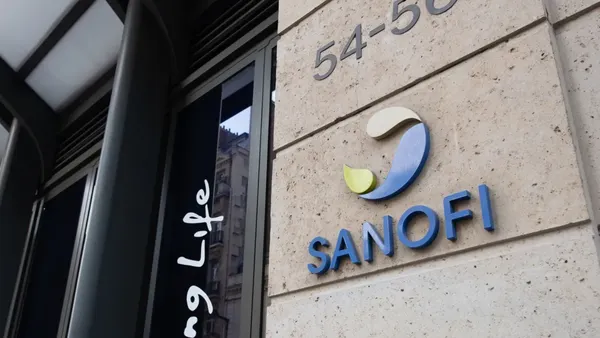Dive Brief:
- Roche is pausing sales of the Duchenne gene therapy Elevidys in some countries outside the U.S. after partner Sarepta Therapeutics agreed Monday to a Food and Drug Administration request to do the same in the U.S.
- Roche said Wednesday it is temporarily and voluntarily halting shipments of the treatment in countries that reference the FDA’s approval of Elevidys in their local decision. The Swiss pharmaceutical company markets the gene therapy outside the U.S. under a 2019 alliance with Sarepta, and will continue to ship Elevidys in countries that don’t rely on FDA decisions.
- The FDA asked Sarepta to stop shipping Elevidys following the deaths from acute liver failure of two teenagers treated with it earlier this year. Both Sarepta and Roche maintain the benefit-risk balance to treatment remains positive in younger patients who can still walk.
Dive Insight:
Outside of the U.S., Elevidys is approved in eight other countries, including Brazil, Israel, Japan and Persian Gulf nations like Bahrain and the United Arab Emirates. It remains under review in the European Union, where regulators had asked for a pause to testing after the first patient death was reported in March.
Shipments will continue to Brazil and Japan, a Roche spokesperson confirmed by email.
“Roche believes that the benefit-risk profile is positive in the ambulatory patient population,” the company explained in its statement. “As such, in countries that do not reference the FDA for approval and where Elevidys is approved, Roche will continue to supply and ship Elevidys to enable treatment of ambulatory patients, in consultation with local regulatory authorities.”
Roche added that there have been no deaths among the approximately 760 ambulatory Duchenne patients who have been treated with Elevidys in clinical and commercial settings. Sarepta has previously indicated nearly 1,000 patients total have received Elevidys to date, suggesting some 200 of those treated so far could no longer walk.
Duchenne is a genetic disease that progressively weakens muscles and typically erodes patients’ ability to walk by their teenage years or earlier. Because Elevidys is dosed by weight, older and heavier patients receive larger doses, which some in the gene therapy field believe could carry greater risk of liver injury.
Sarepta and Roche both voluntarily paused treatment of non-ambulatory patients in June after the second teenager died.
In recent weeks, Sarepta and the FDA had agreed on a new warning label for Elevidys that the company believed would resolve any concerns the agency held over the therapy’s use in ambulatory patients.
But that changed last week, after Sarepta was forced to disclose the death of a third patient, with a different kind of muscular dystrophy, who had been treated with an experimental gene therapy. While that therapy is different from Elevidys, they share a component used to deliver functional genes to muscle cells.
Sarepta has indicated that death is not relevant in evaluating Elevidys’ safety, but the FDA on Friday requested the company stop shipping the treatment altogether. Sarepta initially refused, only to back down three days later.
“Roche remains confident in the significant value Elevidys can bring to ambulatory patients with DMD,” Roche said in its statement. “Roche is working to understand why the FDA has requested that shipments be paused in the ambulatory patient population, and is in contact with the appropriate health authorities globally to determine next potential steps.”














